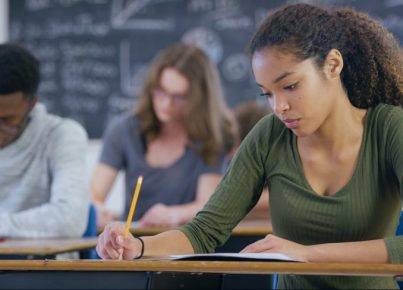In this series, I hope to guide you in acquiring the vocabulary that you need to know to be considered a competent education professional. In this article, we will discuss education vocabulary centered on multicultural education.
Click here to view all of the articles in the series.
Bisexual is the term given to sexual behavior or an orientation involving physical or romantic attraction to both males and females. It is one of the three main classifications of sexual orientation, along with a heterosexual and a homosexual orientation.
Cyber Bullying refers to bullying in which the offenders use Internet service or mobile technologies — such as email, chat room discussion groups, instant messaging, web pages, or SMS (text messaging) — with the intention of harming another person.
Differentiation refers to the practice of adjusting curriculum and assessments to the abilities, learning pace and learning styles of students, offering a variety of assignment choices to maximize opportunities for success.
Dual Exceptionality A term applied to students who are identified as gifted in one or more areas but simultaneously learning-disabled and possibly low achieving as a result.
English as a Second Language (ESL) A method of language acquisition where students are placed in regular English-speaking classes for part of the school day, and pulled out for intensive small group language focus during other classes. A modified form of immersion.
FAPE, LRE Fair and Appropriate Public Education, Least Restrictive Environment. Legal terminology applied in the Public Law 94-142; The Education for All Handicapped Children Act of 1975, which requires that students with disabilities must be placed in regular classrooms with their non-disabled peers, to the extent that their abilities allow.
Giftedness Defined variously as an IQ test score over 130, and/or a high level of natural ability, motivation, and creativity in a given field or area of study. It can refer to a combination of these elements.
Globalization The inclination to integrate societies and communities at the multi-national level, including linguistic, economic, technological, and societal elements of world culture.
Homosexual Someone who practices homosexuality; having a sexual attraction to persons of the same sex.
Individuals with Disabilities Education Act (IDEA) is a federal law specifically mandating that schools provide equitable education for the mentally and physically disabled.
Individualized Education Program (IEP) is an education plan developed specifically for each student with a disability. In Canada and the United Kingdom, an equivalent document is called an Individual Education Plan.
Inclusion The participation of students with disabilities in regular education classrooms, usually with support services.
Inclusive and Particularistic are two key terms referring to characteristics of a culturally responsive curriculum that ensures all students are welcomed and included in all aspects of the school, while acknowledging their unique differences with respect and acceptance.
Learning Disability Underdeveloped skill in one or more areas, usually related to neurological disorders. Applies to students whose intelligence level is average or above and often the result of information processing issues, psychological problems or motor dysfunction, hearing or visual problems.
Multiple Intelligences refers to a theory proposed by educational psychologist Howard Gardner, suggesting that certain areas of specialized intelligence become more developed than others. Includes 10 distinct areas of intelligence: visual/spatial, mathematical/logical, musical/rhythmic, kinesthetic, intrapersonal, interpersonal, naturalistic and existentialist.
Response to Intervention (RTI) is a three-tiered approach to identifying learning disabilities, intervening to address, accommodate, and remediate students identified with these disabilities and helping them to be successful in school.
School Climate is a collective, descriptive label for the social interactions and relationships among students — with each other and with their teachers — and teachers’ interactions with their peers and administrators. The ways students experience the school and culture: the ways teachers and administrators interact and collaborate.
School Culture refers to the values, traditions, and infrastructure in each school. These characteristics govern how the school functions as an entity.
Team Teacher is a certified special education teacher who cooperates with content teacher in a regular classroom, provide special services, additional attention, and support for students identified with learning disabilities.
Transgender A general term applied to individuals, behaviors, and groups involving tendencies to vary from the usual gender roles.
Title IX refers to a Federal law passed in 1972 that prohibits discrimination on the basis of gender in public schools and private schools that receive federal funding.
Wechsler Intelligence Scale for Children (WISC) is the most frequently administered IQ assessment for students 6–16 years of age, developed by David Wechsler in the late 1940s. Scale ranges from 10–140. Measures a variety of skills and aptitudes, and is most frequently used as a predictive indicator of academic success.
Are there any terms that we missed?



